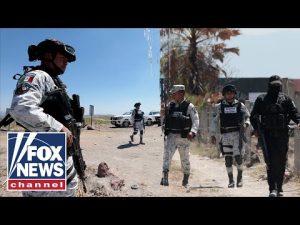In recent years, a pressing issue in the United States has quietly evolved into a full-blown crisis—the unchecked power of drug cartels. The conversation gaining momentum is whether these criminal organizations should be classified as terrorist groups. The chaos they create extends beyond mere drug trafficking; they are now responsible for the deaths of thousands of Americans annually due to overdoses. This epidemic deserves to be met with more than just half-hearted attempts at stopping illegal activities. It requires the significant intervention of all American powers, including intelligence agencies and possibly even the Department of Defense.
During the previous administration, the numbers showed a stark, relentless rise in overdose deaths, yet the efforts to combat these sinister forces were seemingly minimal. The figures speak for themselves. Last year alone, overdose deaths climbed steeply, indicating a lackluster approach to a monumental problem. The former administration had a different stance, hinting at stronger measures and the determination to treat cartels not just as criminal enterprises but as the armed terrorist organizations they indeed are.
Consider the potential plan of action that includes collaborating with international partners to tackle the root of the problem from all angles. This strategic shift carries the potential to benefit everyone involved. The messaging is clear and powerful: the United States won’t idly stand by while its citizens fall victim to drugs flooding across the border. If previous tactics allowed the cartels to thrive, it’s high time to reassess and rectify.
Critics argue the risks involved are high, but in truth, the downside is doing nothing and watching as American lives are destroyed. The urgency to address this is paramount, as it reverberates throughout families and communities across the nation. Complacency and acceptance of the current state of affairs as the norm simply can’t continue. There needs to be action, and it needs to be swift.
The discussion also highlights the misplaced priorities seen in sanctuary policies. While intended to protect, these areas often end up harboring high-risk individuals who contribute to crime and disorder. It seems some leaders are more inclined to side with criminals than protect the law-abiding citizens they are supposed to serve. These policies spill over, affecting the entire country. It’s a wrong that needs to be righted with more robust, unyielding policies that prioritize American lives and security above all else.







